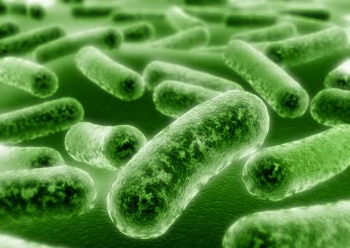| Description | Participants | Agenda | Summary | Products |
|---|
NIMBioS Investigative Workshop
Computational Advances in Microbiome Research

Topic: Computational Advances in Microbiome Research (CAMR)
Meeting dates: July 27-28, 2015
Location: NIMBioS at the University of Tennessee, Knoxville
Organizers:
Jill Banfield, Earth and Planetary Science and Environmental Science, Policy and Management, Univ. of California, Berkeley
Curtis Huttenhower, Biostatistics (Computational Biology and Bioinformatics), School of Public Health, Harvard Univ.
Objectives: Recent years have seen a tremendous upswing in microbial community research, ranging from studies of the human microbiome to investigations of biogeochemical cycling in global soil and oceans and coral mucus ecosystems. This has been triggered in large part by the decreasing cost, increasing ubiquity, and democratization of analysis methods for high-throughput sequencing, which has made both amplification-based and shotgun metagenomic profiling of microbial communities accessible to diverse research fields. Microbial community studies have a long history derived from a variety of research areas, however, including ecology, soil and ocean biochemistry, human and environmental toxicology, air quality and environmental monitoring, agriculture, and biodefense. As the methods necessary for modern data analysis have become more complex, new computational approaches have developed independently in many of these subfields, but there have been few opportunities to integrate knowledge and bioinformatic techniques across microbial community research areas.
The overarching goal of this workshop was to bring together and integrate novel bioinformatic techniques from diverse areas of microbial community research. This allowed us more specifically to:
- Share the state of the art in microbial community analysis from diverse fields.
- Identify techniques from one field that are useful in others.
- Identify gaps in computational and statistical techniques not currently addressed in any subfields.
- Identify gaps in biological knowledge that could be addressed by new quantitative methods.
The workshop was designed as a small, focused workshop bringing together the top thought leaders in computational microbial community analysis techniques from a variety of biological application areas in order to foster new ideas, accelerate the pace of biological discovery by disseminating current techniques across fields, provide a starting point for new collaborations, and identify gaps that might be targeted by future funding opportunities.
Computational Advances in Microbiome Research WordPress site
![]() Live Stream.
Presentations were available for viewing via live streaming during the workshop.
Live Stream.
Presentations were available for viewing via live streaming during the workshop.
Playlist of online videos of selected workshop presentations.
Video link to special presentation by Matt Kane (Program Director, Division of Environmental Biology, NSF): Funding Opportunities in Biology at the National Science Foundation, Jul 28, 2015.

Products
Publications
Iwai et al. 2016. Piphillin: Improved Prediction of Metagenomic Content by Direct Inference from Human Microbiomes. PLoS ONE, 11(11): e0166104. [Online]
NIMBioS Investigative Workshops focus on broad topics or a set of related topics, summarizing/synthesizing the state of the art and identifying future directions. Investigative Workshops have the potential for leading to one or more future Working Groups. If needed, NIMBioS can provide support (travel, meals, lodging) for Workshop attendees, whether from a non-profit or for-profit organization.
A goal of NIMBioS is to enhance the cadre of researchers capable of interdisciplinary efforts across mathematics and biology. As part of this goal, NIMBioS is committed to promoting diversity in all its activities. Diversity is considered in all its aspects, social and scientific, including gender, ethnicity, scientific field, career stage, geography and type of home institution. Questions regarding diversity issues should be directed to diversity@nimbios.org. You can read more about our Diversity Plan on our NIMBioS Policies web page. The NIMBioS building is fully handicapped accessible.
NIMBioS
1122 Volunteer Blvd., Suite 106
University of Tennessee
Knoxville,
TN 37996-3410
PH: (865) 974-9334
FAX: (865) 974-9461
Contact NIMBioS



